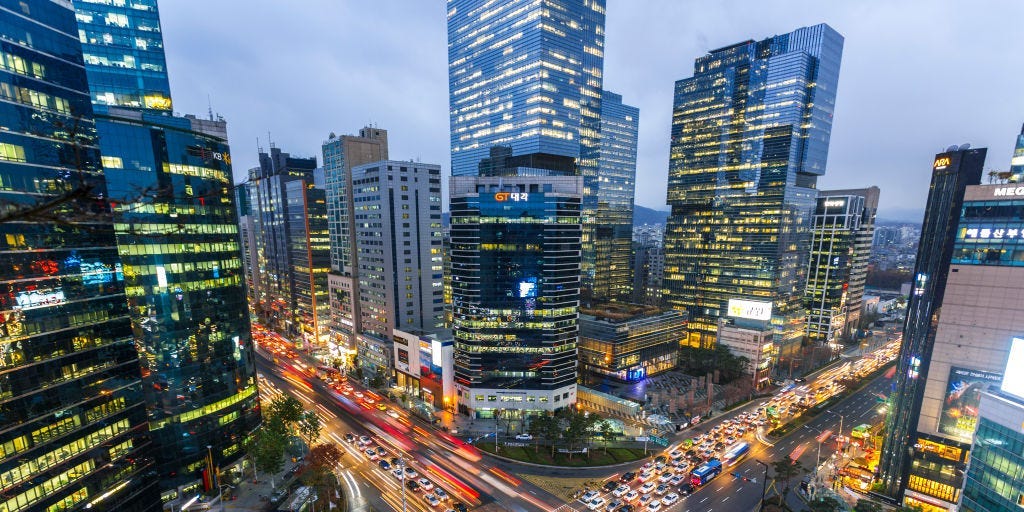The Strong Office Real Estate Sector in Seoul: Lessons for the Remote Work Debate
The South Korean Office Market: A Cultural Preference?
The US workforce remains divided over the debate of flexible work-from-home arrangements versus a return to the office. However, the thriving office market in Seoul, South Korea, presents a compelling argument for the benefits of returning to the office – especially for those observing the struggles of the US commercial real estate sector.
In Seoul, over 98% of grade-A offices are currently occupied, thanks to the return of white-collar workers to physical office spaces. Bloomberg reports that this surge in demand has driven rental prices up by approximately 15% in the past year.
Claire Choi, the head of research for Korea at Global Commercial Real Estate Services (CBRE), suggests that this trend is primarily driven by cultural factors. Koreans tend to embrace the directive to return to the office without hesitation, stating, ‘If we are told to come back to the office, we will come back to the office.’
Changing Landscape: Decreased Remote Work Opportunities in Korea
While South Korea experienced a high prevalence of work-from-home (WFH) policies during the summer of 2021, with 91.5% of leading companies implementing such measures, recent surveys indicate a decrease in remote work opportunities as COVID-19 restrictions ease. Currently, less than 60% of major companies allow their employees to work remotely, according to a study conducted by the Korea Enterprises Federation (KEF).
Among the companies still offering remote work options, the majority have implemented selective policies, granting work-from-home privileges on a case-by-case basis. An official from KEF explained that the primary form of telework today involves selecting employees who truly require the option or permitting it temporarily, upon individual application.
The Factors Behind Seoul’s Booming Office Market
The rising demand for office spaces and the prevailing working culture are not the only factors contributing to the strength of the South Korean office market. Since 2021, a scarcity of office space has been observed due to government restrictions on redevelopment and disruptions caused by the pandemic’s impact on construction. Additionally, the Korean economy has shown consistent growth, attracting both domestic and international real estate investment.
The Struggles of US Business Districts and Commercial Real Estate
In contrast to Seoul’s thriving market, US business districts have faced challenges stemming from the surging popularity of remote work and employees’ reluctance to return to a five-day office commute. Goldman Sachs discovered that approximately 20% to 25% of US workers continue to work from home at least part-time, indicating stability in remote work arrangements compared to the pandemic peak of 47%. This figure remains significantly higher than the pre-pandemic average of 2.6%. Additionally, nearly 30% of employees now follow a hybrid work model, blending remote and office work, as reported by Forbes.
Commercial landlords in the US have felt the impact of the remote-work culture, experiencing tenant downsizing or full office vacancies. According to CBRE research, office vacancies in the US reached a 30-year high of 18.2% during the second quarter.
Potential Solutions: Converting Offices to Apartments
Faced with the challenges of vacant office spaces, the Biden administration has proposed incentivizing developers to convert empty offices into apartments. This plan aims to address the pressing housing crisis in the US while repurposing underutilized commercial real estate. These efforts reflect the need for creative solutions amidst the evolving work landscape.







